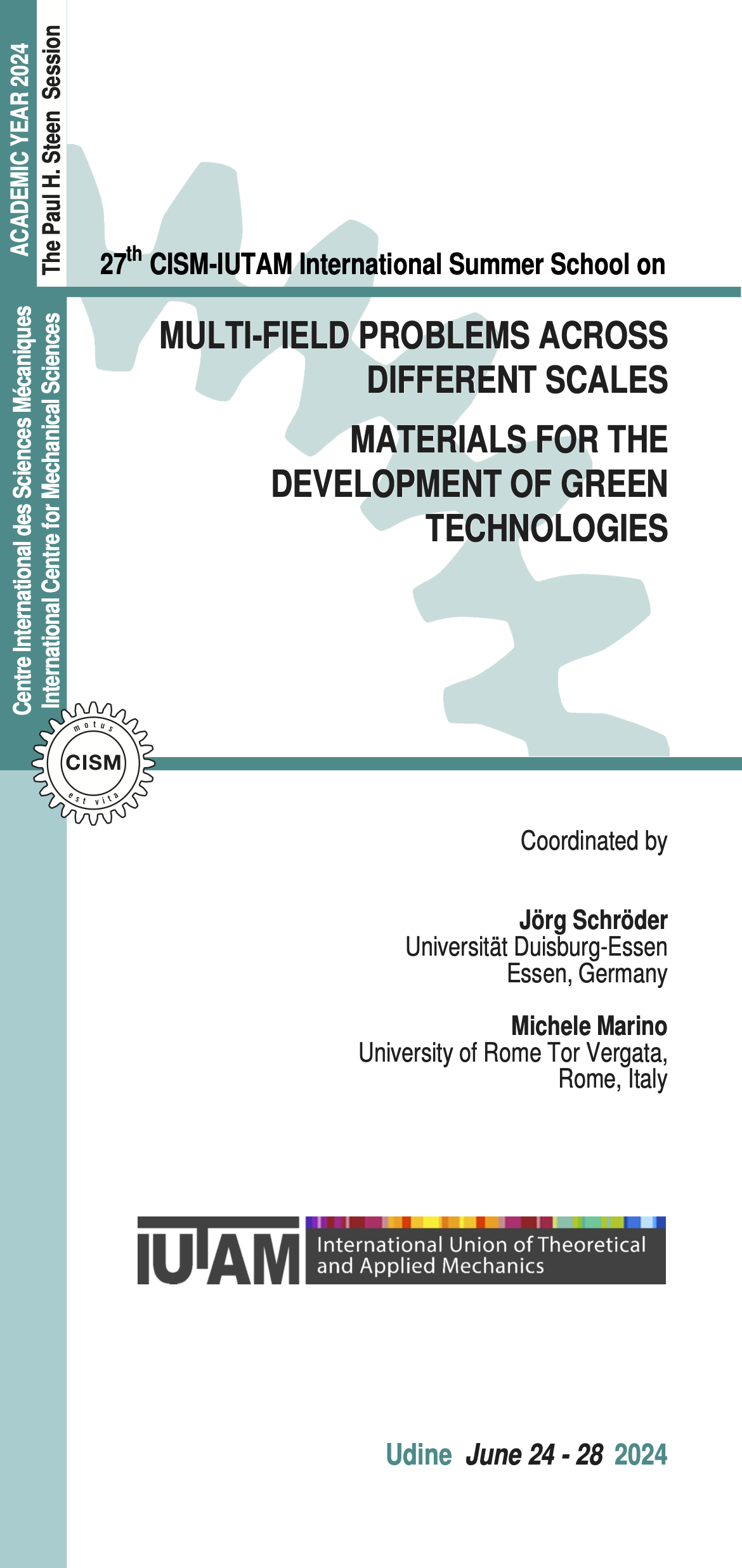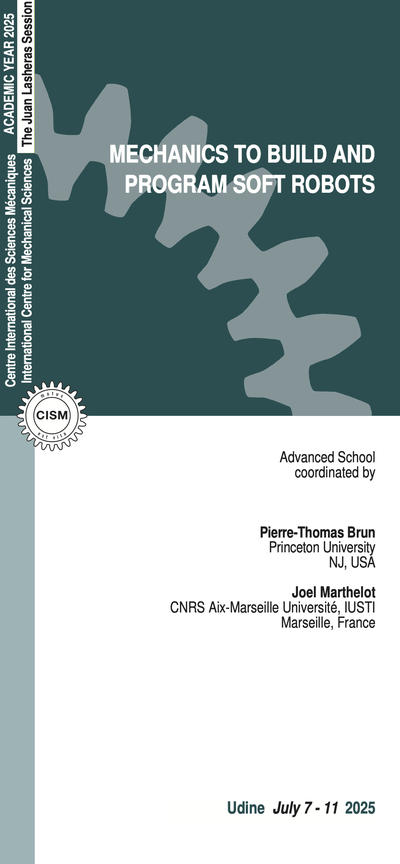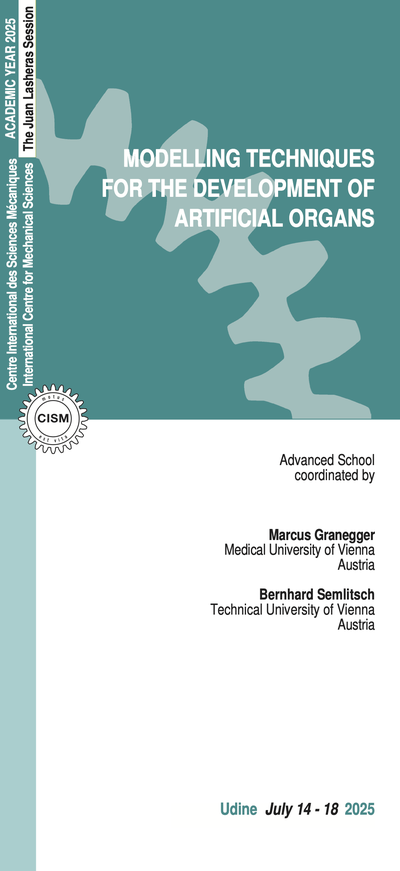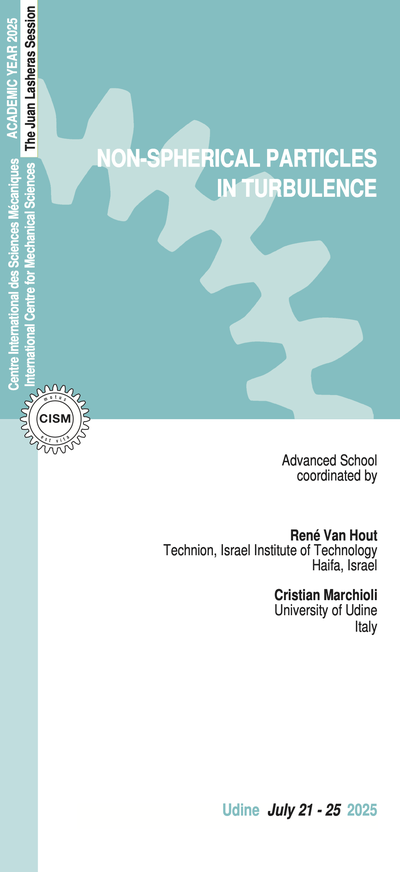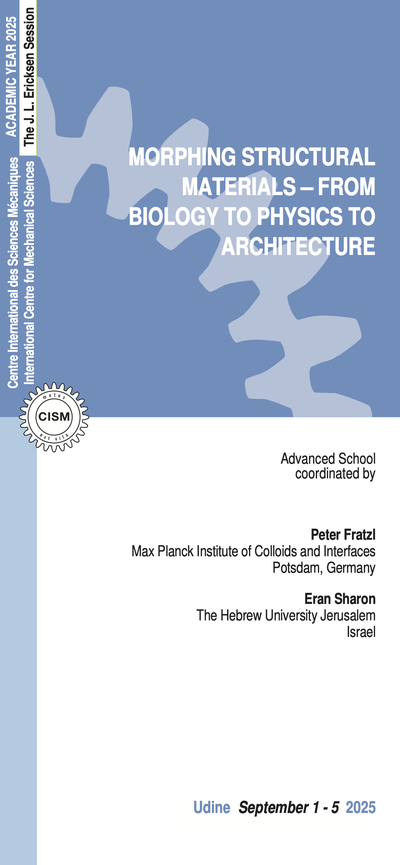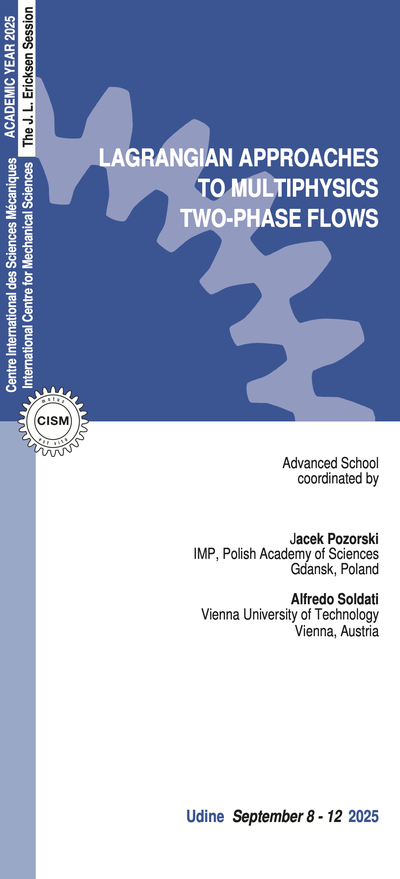Breakthroughs in materials science and engineering are needed to meet the demands of a sustainable society. Required for this are developments in materials technology for efficient energy applications, such as energy conversion (e.g., high-tech magnets), storage (e.g., batteries, hydrogen tanks), and smart devices.
The functionality and mechanical stability of advanced materials for sustainable energy supply rely on the effective coupling of different physical fields, including electro-magnetic, electro-mechanical, and chemo-mechanical interactions. However, many of the underlying mechanisms in this area have yet to be studied experimentally, and predictive theoretical and numerical models are currently being developed worldwide. Moreover, such mechanisms occur at different time and length scales, which poses another challenge to the data analysis and the design of advanced materials. Of course, sustainability also translates into the need to address the durability of structures and devices, accounting for the specific challenges derived from multi-field effects in materials, such as battery failure for electrolyte cracking or hydrogen embrittlement in steels.
This course delves into essential aspects of materials science and engineering, with a specific focus on modeling multi-field phenomena across various scales. Consequently, several challenges arise, including:
Key topics include:
1. Mathematical modeling of single-phase and multi-phase materials for coupled problems.
2. Scale-bridging techniques, spanning from the nano- to the micro- to the macro-scale.
3. Data analysis and design strategies for multi-field materials customization.
Ariadne’s thread of this course will be the analysis of the energy transfer mechanisms across scales to promote an experimental and in silico material design for a sustainable “Energiewende”. To achieve this, the course will explore experimental, theoretical, and computational methodologies, offering a comprehensive and cross-disciplinary perspective in the field.
Key topics include:
1. Continuum thermodynamics of coupled responses, encompassing thermo-, electro-magneto-, and chemo-mechanical aspects.
2. Numerical approaches for multi-field problems and machine learning technologies for data analysis.
3. Homogenization techniques for complex microstructures and multi-field phenomena.
4. Experimentally study of magnetism on atomic and macroscopic length scales.
5. Understanding the molecular basis of coupled mechanisms, ab initio methods.
6. An exemplary case study on the workflow from experiments to macroscopic characterizations using ab initio methods for hysteresis design aspects of magneto-mechanical coupled materials in high-tech magnets applications.
7. Applications focusing on the coupled response of materials for the green economy, including the study of hydrogen embrittlement in steels, failure of solid electrolyte Li-ion batteries, and multi-responsiveness of functionalized hydrogels.
This course is intended for graduate students and postdoctoral fellows from academia and industry interested in an interdisciplinary perspective of constitutive modeling of multi-physics mechanisms at different scales. A background in engineering or materials science is recommended for participants.
de Anda Salazar J, Heuzé T, Stainier L, 2020. Multifield variational formulations of diffusion initial boundary value problems. Cont. Mech. Thermodynamics 33(2), 563-589.
Fortunato NM et al., 2023. High-throughput design of magnetocaloric materials for energy applications: MM’X alloys, Advanced Science, 2206772.
Fuhg JN, et al., 2021. Model-data-driven constitutive responses: Application to a multiscale computational framework. Int J Engrg Science 167:103522.
Gutfleisch O et al., 2016. Mastering hysteresis in magnetocaloric materials, Phil. Trans. R. Soc. A 347, 20150308.
Hajikhani A, Wriggers P, Marino M, 2021. Chemo-mechanical modelling of swelling and crosslinking reaction kinetics in alginate hydrogels. J Mech Phys Solids 153:104476.
Mukherjee, D. et al., (2023), Ingress of Li into Solid Electrolytes: Cracking and Sparsely Filled Cracks. Small Struct. 2300022.
Reichel M, Xu B-X, Schröder J, 2022. A comparative study of finite element schemes for micromagnetic mechanically coupled simulations. J. Appl. Phys. 132, 183903.
Schröder J, 2014. A numerical two-scale homogenization scheme: the –method. In: Schröder J, Hackl K (eds) Plasticity and Beyond, CISM Courses and Lectures, vol 550. Springer, p 1–64, https://doi.org/10.1007/978-3-7091-1625-8.
Shishvan S, Csányi G and Deshpande VS, 2020. Hydrogen induced fast-fracture, Journal of the Mechanics and Physics of Solids, 134, 103740.
Waseem A, et al., 2021. Two-scale analysis of transient diffusion problems through a homogenized enriched continuum. Eur. J. Mech. - A/Solids 87, 104212.
Wende H, 2004. Recent advances in X-ray absorption spectroscopy, Reports on Progress in Physics 67, 2105-2181.
Zhang H, 2021. High-throughput design of magnetic materials, Electronic structure, 3, 033001.
6 lectures on: The modeling of the coupling between chemistry and mechanics. These lectures will present a thermodynamic modeling framework for open systems. Examples will cover environmentally assisted cracking, enabling the analysis of hydrogen embrittlement in steels, and Li-ion battery failure from ceramic electrolyte cracking for the study of battery degradation.
6 lectures on: Theoretical and computational modelling principles for multi-scale and multi-field problems. These lectures will first present the micromechanical approach to material homogenization, from the basics up to advanced numerical methods. Moreover, the thermodynamics of continuum media for coupled problems will be discussed, with applications on hydrogels response.
6 lectures on: Models and simulations of magneto-mechanically coupled problems. These lectures will discuss the physical origin of exchange energies and the influence of magneto-crystalline anisotropies on hysteresis curves. A continuum approach will be also presented, from balance laws through magneto-mechanical constitutive models up to finite element formulations.
6 lectures on: Variational multi-field formulations for coupled multi-scale problems. These lectures will discuss mathematical and numerical formulations for coupled diffusion-mechanics across the scales, including complex boundary conditions. A particular focus will also be given to non-equilibrium effects emerging at the macroscale from transient fine scale phenomena.
6 lectures on: Advanced experimental techniques for characterizing functional materials across scales, with a focus on fundamental magnetic interactions. These lectures will illustrate the complementary nature of atomic-scale measurements and macroscopic experiments in determining material functionality for energy conversion, also providing data for ab initio methods.
6 lectures on: Ab initio methods for magnetic materials. These lectures will shine a light on the atomic origin of magnetic moments, exchange coupling mechanisms between magnetic moments, and physics of magneto-crystalline anisotropy. Application of density functional theory and machine learning methods for evaluating these properties will be also discussed, providing practical examples and computational strategies to enhance comprehension.
ADMISSION AND ACCOMMODATION
The course is offered in a hybrid format, allowing participants the flexibility to attend either in person or remotely via the Microsoft Teams platform.
Limited spots are available for on-site attendance and will be allocated on a first-come, first-served basis.
The registration fees are:
- On-site participation: 600.00 Euro + VAT*
Includes a complimentary bag, five fixed menu buffet lunches, hot beverages, downloadable lecture notes.
Deadline for on-site application is May 24, 2024.
- Live Streaming Online Participation: 250.00 Euro + VAT*
Includes downloadable lecture notes.
Deadline for online application is June 12, 2024.
Application forms should be submitted online through the website: http://www.cism.it.
A confirmation message will be sent to accepted participants.
Upon request, a limited number of on-site participants can be accommodated at CISM Guest House at the price of 35 Euro per person/night (contact: foresteria@cism.it)
* where applicable (bank charges are not included) - Italian VAT is 22%.
CANCELLATION POLICY
Applicants may cancel their registration and receive a full refund by notifying the CISM Secretariat in writing (via email) no later than:
- May 24, 2024 for on-site participants (no refunds after the deadline);
- June 12, 2024 for online participants (no refunds after the deadline).
Cancellation requests received before these deadlines will be subject to a 50.00 Euro handling fee. Incorrect payments are also subject to a 50.00 Euro handling fee.
GRANTS
A limited number of participants from universities and research centres who do not receive support from their own institutions can request a waiver of the registration fee and/or free lodging.
Requests should be sent to the CISM Secretariat by April 24, 2024, along with the applicant's curriculum vitae and a letter of recommendation from the head of the department or a supervisor confirming that the institute cannot provide funding. Preference will be given to applicants from countries that sponsor CISM.
